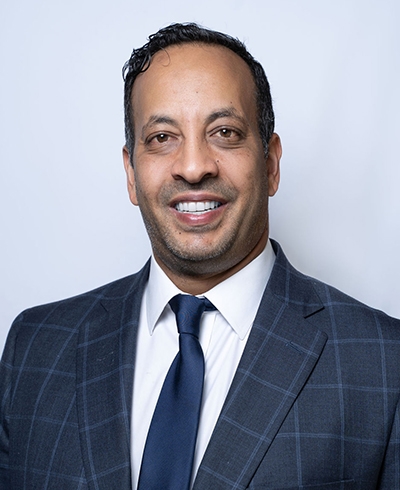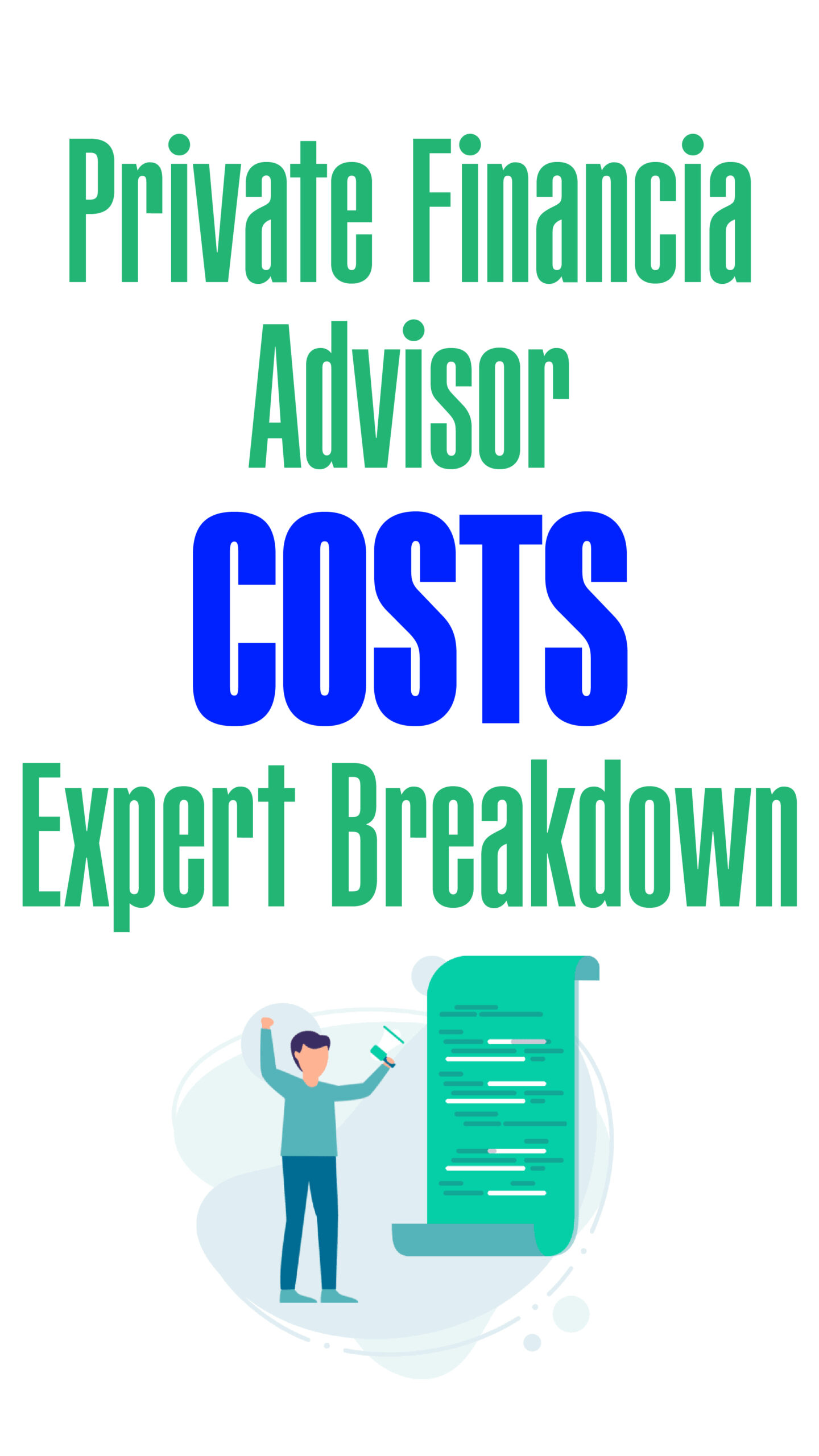A private financial advisor typically costs between $150 to $400 per hour. Some charge a percentage of assets managed, usually 1% annually.
Hiring a private financial advisor can be a wise investment for managing your finances. The cost varies based on the advisor’s experience, location, and services provided. Hourly rates range from $150 to $400, while some advisors charge a percentage of your assets, usually around 1% per year.
Understanding these costs helps in choosing the right advisor for your financial needs. Making an informed decision ensures you get the best value for your money while achieving your financial goals. Always compare different advisors to find one that fits your budget and financial objectives.

Credit: www.ameripriseadvisors.com
Introduction To Private Financial Advisors
Private financial advisors help people manage their money. They provide expert advice on investments, savings, and financial planning. These professionals can be a valuable asset for anyone looking to secure their financial future.
Who Needs One
Many people can benefit from a private financial advisor. Here are some examples:
- High-income earners
- Small business owners
- Retirees
- Individuals with complex financial situations
Even those just starting their careers can find value in financial advice. An advisor can help set up a budget and plan for the future.
Types Of Services Offered
Private financial advisors offer a variety of services. These include:
- Investment Management: Advisors help manage and grow your investments.
- Retirement Planning: They assist in planning for a comfortable retirement.
- Tax Planning: Advisors help minimize your tax liabilities.
- Estate Planning: They ensure your assets are distributed according to your wishes.
- Budgeting and Saving: Advisors help create and stick to a budget.
Each of these services can be tailored to meet your specific needs.
Here is a table summarizing the types of services offered:
| Service | Description |
|---|---|
| Investment Management | Managing and growing your investments |
| Retirement Planning | Planning for a comfortable retirement |
| Tax Planning | Minimizing your tax liabilities |
| Estate Planning | Ensuring your assets are distributed as per your wishes |
| Budgeting and Saving | Creating and sticking to a budget |

Credit: www.facebook.com
Factors Influencing Cost
Understanding the cost of hiring a private financial advisor can be complex. Several factors influence these fees. Knowing these factors helps you make informed decisions.
Experience And Credentials
The experience of a financial advisor greatly affects their cost. Advisors with more years in the field usually charge more. They have honed their skills and offer better advice. Credentials also play a significant role.
Advisors with certifications like Certified Financial Planner (CFP) or Chartered Financial Analyst (CFA) often have higher fees. These credentials reflect their expertise and training. Below is a table showing the typical cost ranges based on experience and credentials.
| Experience Level | Credentials | Typical Cost (Hourly Rate) |
|---|---|---|
| Beginner (0-3 years) | Basic Licenses | $100-$200 |
| Intermediate (4-10 years) | CFP | $200-$400 |
| Advanced (10+ years) | CFP, CFA | $400-$600 |
Geographic Location
Geographic location is another significant factor. Advisors in larger cities often charge more. This is due to higher living costs and demand for services. In smaller towns, fees are usually lower.
For example, a financial advisor in New York City may charge more than one in a rural area. Below is an unordered list showing typical cost ranges based on location.
- Large Cities: $300-$600 per hour
- Suburban Areas: $200-$400 per hour
- Rural Areas: $100-$300 per hour
Understanding these factors helps you budget for a private financial advisor. Choose wisely based on your needs and budget.
Fee Structures Explained
Understanding the cost of hiring a private financial advisor is crucial. Financial advisors offer different fee structures to match various needs and budgets. Here’s a detailed look at the common fee structures: Hourly Rates and Flat Fees.
Hourly Rates
Many financial advisors charge by the hour. This fee structure is simple and transparent.
- Advisors charge between $150 to $400 per hour.
- Pay only for the hours you need.
- Ideal for clients needing specific advice.
Hourly rates can vary based on the advisor’s experience. More experienced advisors may charge higher rates. This structure is good for people with a limited budget.
Flat Fees
Some advisors charge a flat fee for specific services. This is a one-time payment.
| Service | Typical Cost |
|---|---|
| Financial Plan | $1,000 – $3,000 |
| Investment Management | $1,500 – $5,000 |
Flat fees cover a complete service package. This fee structure is predictable. You know the cost upfront.
Flat fees are ideal for comprehensive services. If you need ongoing advice, consider other fee structures.

Credit: www.ameripriseadvisors.com
Percentage-based Fees
Understanding the cost of hiring a private financial advisor is crucial. Many advisors charge percentage-based fees for their services. These fees are often tied to the amount of money they manage for you. Let’s delve into the specifics of percentage-based fees and their different types.
Assets Under Management
One common fee structure is based on Assets Under Management (AUM). This means the advisor takes a percentage of the total assets they manage. Here’s a typical breakdown:
| Asset Range | Annual Fee Percentage |
|---|---|
| $0 – $250,000 | 1.5% |
| $250,001 – $1,000,000 | 1.0% |
| $1,000,001 – $5,000,000 | 0.75% |
| $5,000,001 and up | 0.5% |
For example, if an advisor manages $500,000 for you, the annual fee might be 1.0%, or $5,000.
Performance Fees
Some advisors charge performance fees. These fees depend on the returns they achieve on your investments. The better the performance, the higher the fee. Here are some key points about performance fees:
- High-water mark: You only pay if your portfolio value surpasses its highest previous value.
- Hurdle rate: The advisor must exceed a specific return rate before charging a fee.
For instance, if your advisor uses a 10% hurdle rate, they only charge fees on returns above this rate.
Additional Costs To Consider
Hiring a private financial advisor can be a significant investment. Besides the basic fees, there are other costs you should consider. Understanding these costs ensures you get the best value for your money.
Transaction Fees
Transaction fees apply each time your advisor buys or sells securities for you. These fees can add up quickly, especially with frequent trading. Here is a table to help illustrate typical transaction fees:
| Type of Transaction | Typical Fee Range |
|---|---|
| Stock Trades | $5 – $50 per trade |
| Mutual Fund Purchases | $10 – $75 per trade |
| Bond Purchases | $10 – $30 per trade |
Transaction fees can vary based on the advisor and the brokerage firm. Always ask your advisor about these fees upfront.
Retainer Fees
Some financial advisors charge a retainer fee. This is a fixed amount you pay regularly, such as monthly or annually. The retainer fee covers ongoing services and advice.
- Monthly Retainers: $100 – $500 per month
- Annual Retainers: $1,200 – $6,000 per year
Retainer fees provide continuous access to your advisor. This can be beneficial for ongoing financial planning and advice.
Retainer fees might seem high, but they often include comprehensive services. Always compare what different advisors offer for their retainer fees.

Comparing Costs With Value
Choosing a private financial advisor involves considering both costs and value. While initial fees may seem high, it’s essential to evaluate the long-term benefits. This section will help you understand how to compare costs with value.
Short-term Vs Long-term Benefits
Private financial advisors charge fees for their services. These fees vary based on expertise and service scope. Let’s break down the short-term and long-term benefits of hiring an advisor.
Short-Term Benefits:
- Immediate financial guidance
- Help with budgeting and saving
- Quick resolution of financial issues
Long-Term Benefits:
- Comprehensive financial planning
- Investment strategies for future growth
- Retirement planning and security
Short-term benefits provide quick fixes, but long-term benefits build wealth. Evaluating both helps in understanding the true value of an advisor.
Quality Of Advice
The quality of financial advice impacts your financial health. Higher fees often mean better quality and more personalized service. Here’s a comparison:
| Low-Cost Advisors | High-Cost Advisors |
|---|---|
| Basic financial guidance | Customized financial plans |
| Limited investment options | Diverse investment strategies |
| Minimal support | Ongoing support and adjustments |
Choosing between low-cost and high-cost advisors depends on your financial goals. High-cost advisors typically offer more value, especially for long-term planning. Always consider the quality of advice alongside the costs.
How To Choose The Right Advisor
Choosing the right financial advisor is a crucial decision. Your financial future depends on it. You need someone trustworthy and knowledgeable. This section will guide you on what to ask and what to avoid.
Questions To Ask
Before hiring an advisor, ask these important questions:
- What are your qualifications? Ensure they have the right certifications.
- How do you charge for your services? Understand their fee structure.
- What is your investment philosophy? Make sure it aligns with your goals.
- Can you provide references? Check their past client reviews.
- Are you a fiduciary? Fiduciaries must act in your best interest.
Red Flags To Watch Out For
Be cautious if you notice any of these red flags:
- Pushy sales tactics – Avoid advisors who pressure you into quick decisions.
- Lack of transparency – Be wary if they are vague about fees or services.
- Promises of high returns – High returns with low risk are often too good to be true.
- No clear plan – A good advisor will have a clear strategy for your needs.
- Negative reviews – Check online reviews and avoid advisors with bad reputations.
By asking the right questions and watching for red flags, you can choose the best financial advisor for your needs.
Real-life Examples
Understanding the cost of a private financial advisor can be complex. Real-life examples make it easier. Below are some real-life case studies and client testimonials that illustrate the costs and benefits of hiring a private financial advisor.
Case Studies
| Client | Advisor Fees | Services Provided | Outcome |
|---|---|---|---|
| John Doe | $2,000/year | Investment planning, Retirement planning | 10% portfolio growth |
| Mary Smith | $250/month | Debt management, Tax planning | Reduced debt by 15% |
| James Brown | 1% of assets managed | Estate planning, Wealth management | Increased net worth |
Client Testimonials
John Doe: “My advisor’s fee is $2,000 a year. I’ve seen my portfolio grow by 10%. It’s worth every penny!”
Mary Smith: “I pay $250 a month for my advisor. They helped me reduce my debt by 15%. It’s life-changing.”
James Brown: “My advisor charges 1% of the assets they manage. My net worth has increased significantly.”
These examples show that the cost of a private financial advisor varies. Services and outcomes differ too. Choose the right advisor for your needs and budget.
Frequently Asked Questions
Is It Worth Paying For A Financial Advisor?
Yes, paying for a financial advisor can be worth it. They offer personalized advice, help with complex financial decisions, and can potentially save you money in the long run. Ensure you choose a qualified advisor to maximize benefits.
Is A Private Wealth Advisor Worth It?
A private wealth advisor can be worth it for personalized financial planning, investment strategies, and peace of mind. They help optimize your wealth.
What Is An Appropriate Fee For A Financial Advisor?
Financial advisor fees typically range from 1% to 2% of assets under management. Flat fees or hourly rates vary.
How Much Money Should You Have To See A Financial Advisor?
You can see a financial advisor with any amount of money. Many advisors offer initial consultations for free. Some require a minimum investment, usually around $100,000. It’s best to research and find one that fits your financial situation.
Conclusion
Understanding the cost of a private financial advisor is crucial for effective financial planning. Fees vary based on services and expertise. Consider both fixed and variable costs when choosing the right advisor for your needs. Investing in professional financial advice can offer long-term benefits and peace of mind.
